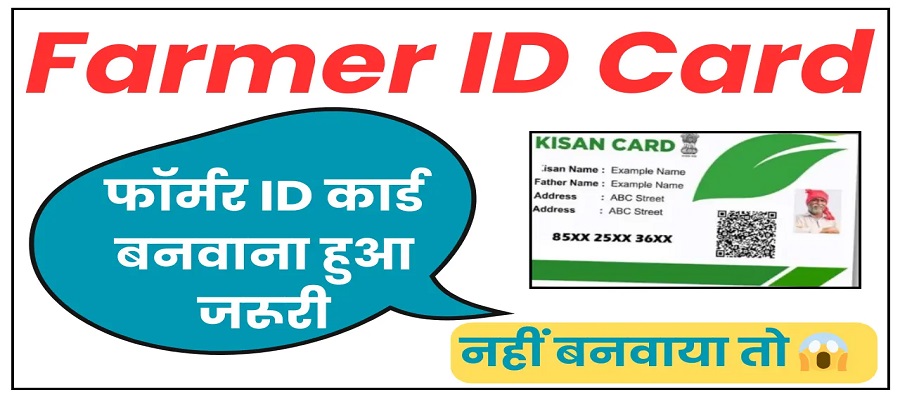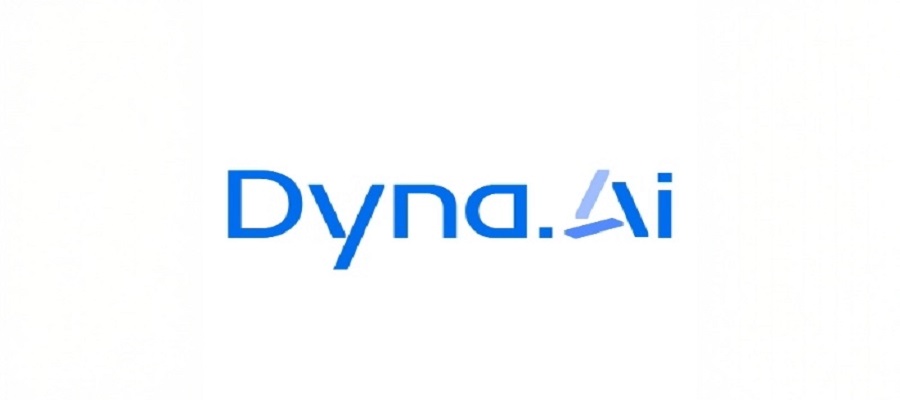E-Business
Online Shoppers: How To Ensure You Fill Your Carts with Genuine & Quality Products

By Adeniyi Ogunfowoke,
On a daily basis across the world, online shoppers fill their shopping carts with tons of thousands of products such as groceries, electronics, health & beauty, gaming, phones and tablets. The quality of products purchased online has always been a point of debate among shoppers, especially since the products can’t be inspected before purchase. The trend is the same in Nigeria, even though the country’s ecommerce sector is just 7 years old.
One of the fundamental methods for helping customers make the right choice when shopping online is ‘ratings and reviews’. Ecommerce companies such as Jumia have made a provision on their platforms for customers to rate and review the quality of products purchased on its jumia.com.ng platform.

Product ratings and reviews have become an essential part of eCommerce businesses because they enable customers to rate/review products or services purchased online. These companies do not do this for fun. They understand that product ratings/reviews have a huge role to play when it comes to driving sales, generating leads and attracting customers to their website.
From gaining local organic search rankings to becoming word-of-mouth, online reviews help reinforce your brand and reputation. If you are rarely mentioned anywhere on the web, how will it influence your customers?
The fact is so many consumers trust online reviews as much as personal recommendations and this is where brands like Jumia, Nigeria’s no 1 shopping destination is different from others. The platformhas a rating guide because quality is part of its fundamental values. More so, it allows customers to leave feedback about their service and products which increases their “mentions”, ultimately leading to more exposure and driving more traffic.
There’s no denying the fact that online reviews are very significant today, and not just that, they are part of most marketing campaigns today so that they can create a big impact in the industry and break sales.
Reasons why reviews/ratings are important to your business
Increase sales
People tend to read online reviews and trust them as much as they are recommended by their friends or families. A significant number of people consider online reviews while choosing a product or service of their need. So, if the particular product review is good, there is a good chance that you will purchase that product and vice versa. This will automatically increase sales.
Better local search rankings
Customer reviews play a crucial role today for organic search rankings in search engines. In fact, enabling customer reviews will add credibility to your company while new reviews are also going to add more unique content to your site. The increased amount of content that is relevant and unique will add a better chance to get ranked on search engines while the pages are also frequently crawled by search engine bots compared to others. All in all, reviews are very important to improve search visibility and drive more traffic to the site through search engines today.
Improved communication and customer service
Analysing the reviews people leave for you – both good and bad – helps keep your ear to the ground with regards to overall customer satisfaction and public opinion. Online reviews help give a voice to both happy and unhappy customers and allow you to open up a public channel of conversation, letting you demonstrate your customer service skills. Online reviews can also give you valuable feedback with regards to what your clients actually want. Reviews provide insight into how your average consumer thinks about your service or industry, rather than what you think about what you offer.
Added marketing opportunities
Online reviews are surely worth the deal and they offer a plethora of benefits to your business that most marketing campaigns fail to do. In fact, online reviews act as micro-marketing campaigns that provide a positive benefit to your potential customers, now and in the long run. Having online reviews already is also going to encourage new customers to voice their opinion and leave their own feedback.
Do product reviews/ratings actually influence online purchasing decisions?
If you describe reviews/ratings/testimonials as the word-of-mouth of online shopping, you won’t be wrong. This is as earlier stated, a lot of customers read these reviews before deciding whether they should buy a product or not. This is even more important due to the prevalence of fake products on some online platforms despite painstaking efforts and stringent penalties to put them at bay.
So, if the review of a particular product is positive and is rated 5-star, your customers will be more inclined to buy that product and if there are so many bad reviews, note that they will steer clear.
However, know that in some cases, it does not necessarily mean that the product is bad. A bad review may be as a result of poor customer service, payment challenges and others. This is systemic. Your customers are informing you to make their purchase seamless. Overall, for you to get favourable reviews, simply offer quality products and services as well as a good customer service and you will observe the positive impact it will have on your reviews.
E-Business
Farmers to Get Identity Card for Loans, Inputs

The federal government, in collaboration with the International Fund for Agricultural Development (IFAD), is building a digital registrar that will identify farmers, their farmlands, type of soil and the crops they grow for targeted services.

The information and the National Identification Number (NIN) will be integrated into a multipurpose identity card that farmers can use to access financial services, inputs and other forms of government assistance.
The digitisation is expected to harmonise farmers’ data across all the 36 states and the Federal Capital Territory.
Speaking at the national launch of the Policy Dialogue Initiative on the National Digital Farmers Registry (NDFR) recently in Abuja, Dr Marcus Ogunbiyi, permanent secretary, Federal Ministry of Agriculture and Food Security (FMAFS), said the new system would address the issue of portfolio farmers, whom he described as “farmers who have no farm.”
“We are going to register farmers and their farms. Not only that, farmers and the type of crop they grow, farmers and the locality they are, the type of soil they have on their farms. There is no farm that will not have a farmer. But there are many farmers who do not have farms. This is an encompassing package.
“When we register these farmers, we are going to provide a physical and digital card for them. With the card, many things can be done by the farmers. It can be used as a means of identification, an asset to some gateway – just anything. It is going to have a handshake with the database of the country, such that with that particular card, the farmer can enter any place and get things done. He or she can redeem inputs and even get a loan, depending on the financial entity,” Ogunbiyi explained.
He said that to accomplish this, the Federal Ministry of Agriculture and Food Security has taken decisive steps to transform their approach to farmer data management, adding, “Chief among these is our strategic partnership with the National Identity Management Commission (NIMC) to implement a far-reaching farmer registration and database project. At the heart of this initiative is the integration of the NIN, which ensures that every Nigerian farmer is uniquely identified and seamlessly integrated into a national agricultural system.”
Mrs Dede Ahoefa Ekoue, country director/representative of the IFAD in Nigeria, said the United Nations (UN) organisation was proud to be part of the initiative on the National Digital Farmer Registry in Nigeria.
“Our role is to convene all the partners, development partners from the public sector, private sector and the international community to put our resources together to support the effort of the government in establishing and enabling a digital farmer registry for the country,” she said.
Mrs Ekoue said that although there were previous efforts to have a national database of farmers, it had the issues of fragmentation and sustainability.
“The government is now providing us with a sense of direction and matching orders to all the actors to work together. This is what we are doing today with several partners, including the African Development Bank, FAO, the World Bank, the EU, the Islamic Development Bank and UK. Also, what is very key is farmers’ organisations because it is about them, it is for them, it must be with them,” she added.
The country director said the IFAD was happy to bring together the private sector and different ministries, departments and agencies, adding, “It will be a game changer for having a strong, updated and sustainable national digital farmer registry.”
Dr Lekan Tobe, the country director of Heifer International in Nigeria, in his remarks at the official launch of the Policy Dialogue Initiative on the National Digital Farmer Registry, emphasised the critical role of partnership and data in transforming Nigeria’s agricultural sector.
He said that this initiative, born from recommendations of previous policy dialogues organised in collaboration with the federal government, aimed to scale up innovative digital technology to enhance food systems across the country.
E-Business
Dyna.Ai Launches Operations in Nigeria

Dyna.Ai, a global leader in AI-as-a-Service (AIaaS), has launched its operations in Nigeria with an exclusive closed-door ‘Nigeria Dyna Day’ event in Lagos, which saw the introduction and orientation of its suite of AI-powered products and solutions to Nigeria’s emerging financial ecosystem.

The event, tagged ‘Nigeria Dyna Day’ and themed “AI Unleashed: Revolutionising Nigeria’s Financial Future,” brought together leading voices from the country’s AI, financial, fintech, telecom, and other key sectors, including representatives from government agencies and major enterprises.
In his opening remarks, Tomas Skoumal, chairman and co-president of Dyna.Ai, emphasized the strategic importance of Nigeria and the broader African market, stating, “For us, it makes sense to start in Nigeria.
There is no bigger country in Africa—this is where the momentum is.” He noted that Africa is no longer just “the future,” but is actively transforming today, driven by rapid digitalization and fintech innovation.
“This is the perfect time to be here,” he added, highlighting that Dyna.Ai sees technology as a vital bridge to financial inclusion and long-term growth across the region.
Skoumal introduced Dyna.Ai’s advanced Agentic AI solutions, including its proprietary Agent Studio and industry-specific language models, designed to power intelligent automation across customer service, marketing, collections, HR and more.
He also underscored the company’s long-term ambition to invest in local talent, stating, “We’re not just here to sell a product—we’re here to build infrastructure, create local jobs, and scale innovation from Nigeria to the rest of Africa.”
Dyna.Ai also showcased its advanced AI technologies at the event, including AvatarGPT, an AI digital human delivering interactive experiences; VoiceGPT, a voice agent featuring authentic local accents for seamless communication in Yoruba, Hausa, and Igbo; along with live demonstrations showing how these innovations empower customer engagement and employee experience.
Delivering the keynote address at the event, Tokoni Peter Igoin, Special Assistant to the President on ICT Development and Digital Innovation, underscored the Federal Government’s vision for a secure and forward-thinking digital ecosystem.
“The government of the Federal Republic of Nigeria, under the visionary leadership of His Excellency, President Bola Ahmed Tinubu, is fully committed to responsible innovation. Our approach to AI and financial technology is rooted in a positive framework. It encourages creativity while ensuring transparency, data protection, and digital security”, he said
Also in his remarks, Olatunbosun Alake, Lagos State Commissioner of Innovation, Science and Technology, gave insights from the government/regulatory perspective.
He announced that the Lagos State government is also taking steps towards the wide adoption and regulation of artificial intelligence in the state with the planned release of the first AI guidelines for the deployment and management of AI in the coming weeks.
E-Business
Survey Reveals Marketing Leaders See Strong Potential in gTLDS Despite Knowledge Gap

A new global survey from the Internet Corporation for Assigned Names and Numbers (ICANN) reveals that 52% of marketing leaders believe generic top-level domains (gTLDs – the three characters or more that come after the dot in a URL) have strong potential for enhancing brand presence online; however, a knowledge gap is preventing many brands from taking advantage of the opportunities that a gTLD can bring.

The research surveyed over 2,000 marketing leaders across eight countries (Brazil, China, India, Mexico, Nigeria, South Africa, U.K., and U.S.) with the purpose of creating a picture of the evolving digital marketing landscape and understanding the levels of awareness around gTLDs.
It comes as ICANN prepares to open the next application window for new gTLDs in April 2026 the New gTLD Program: Next Round – the first opportunity in more than a decade for organizations to apply to operate their own gTLD.
Top-level domains are the letters found at the end of an Internet address (with gTLDs including .charity, .menu, .paris and .ceo). Brands can apply to run their own gTLD as a way to indicate the purpose of their organization or to clearly mark a website as being related to their brand.
The research shows that increasing brand awareness and visibility is the top priority for marketing leaders (54%) and that over half believe that gTLDs have strong potential for enhancing brand presence online.
However, the research also shows that almost a third (32%) of marketing leaders surveyed are unfamiliar with gTLDs, which suggests that operating a new gTLD may be a strategic opportunity that many organizations are currently overlooking.
Key findings from the research include:
- After defining a gTLD, 92% of marketing leaders responded that they could see the potential benefits to gTLDs, with enhanced brand differentiation (46%), improved customer trust (45%), better control over online presence (44%), and improved SEO (44%) topping the list.
- 19% of marketing leaders work for organizations that have previously applied for a gTLD.
- Cost concerns (31%), knowledge gaps (27%), and insufficient resources (24%) were identified as the main barriers to application.
- The research revealed notable regional variations, with Nigerian (74%) and Indian (61%) marketing leaders showing the strongest belief in gTLDs’ potential for branding and online presence. In contrast, marketers in China expressed more mixed views, with 50% seeing strong potential but 49% considering gTLDs an unnecessary investment with unclear Return On Investment.
The findings come at a time when marketing leaders are facing significant challenges in standing out from competitors (53%), attracting and engaging the right audience (52%), and keeping pace with digital trends (47%).
A new gTLD can be an innovative tool for commerce and communication. They allow businesses in specific countries, sectors, or niche markets to create an exclusive, descriptive, and memorable label on the Internet.
An entity operating a gTLD can provide its users and customers with an extra measure of confidence in its security and legitimacy online. This can be valuable in today’s environment, where users often don’t know whether they can trust the source on the Internet.
Theresa Swinehart, SVP, Global Domains & Strategy said: “The New gTLD Program: Next Round presents an opportunity for businesses, communities, governments, and others to apply to operate their own secure space online, tailored to fit their organization, community, culture, language, and customer interests.
Now is also the moment for brands to consider applying for a gTLD, and this research tells us there is still a lack of awareness. ICANN can help provide information and raise awareness of the Next Round and the opportunity it presents for global communities, organizations, and businesses, including brands.”
To help address the knowledge gap, ICANN is developing resources to help organizations understand the application process and potential opportunities for gTLDs ahead of the 2026 application window. ICANN also offers the Applicant Support Program (ASP), which provides financial and non-financial assistance to eligible applicants.

 General News2 days ago
General News2 days agoUche Uzoebo, SANEF CEO Makes Case for More Financial Inclusion Strategies Targeting Women

 News2 days ago
News2 days agoUK Minister for Africa Visits Nigeria to Deepen Strategic Partnership

 Broadcasting2 days ago
Broadcasting2 days agoACAMB Champions Bankers Wellness with Aerobics Fitness Session

 General News2 days ago
General News2 days agoHydrogen, Lagos State Touch Thousands of Business Owners with “Healthy Heart, Healthy Business” Outreach

 E-Business2 days ago
E-Business2 days agoSurvey Reveals Marketing Leaders See Strong Potential in gTLDS Despite Knowledge Gap

 News6 hours ago
News6 hours agoFirst Asset Management Receives 2024 Fund Manager Award

 General News6 hours ago
General News6 hours agoNigeria Relaunches National Talent Export Programme to Unlock $1 Trillion Global Outsourcing Market

 Telecom6 hours ago
Telecom6 hours agoNiRA Holds 17th AGM, Elects New Leadership to Propel .ng Domain Growth




























